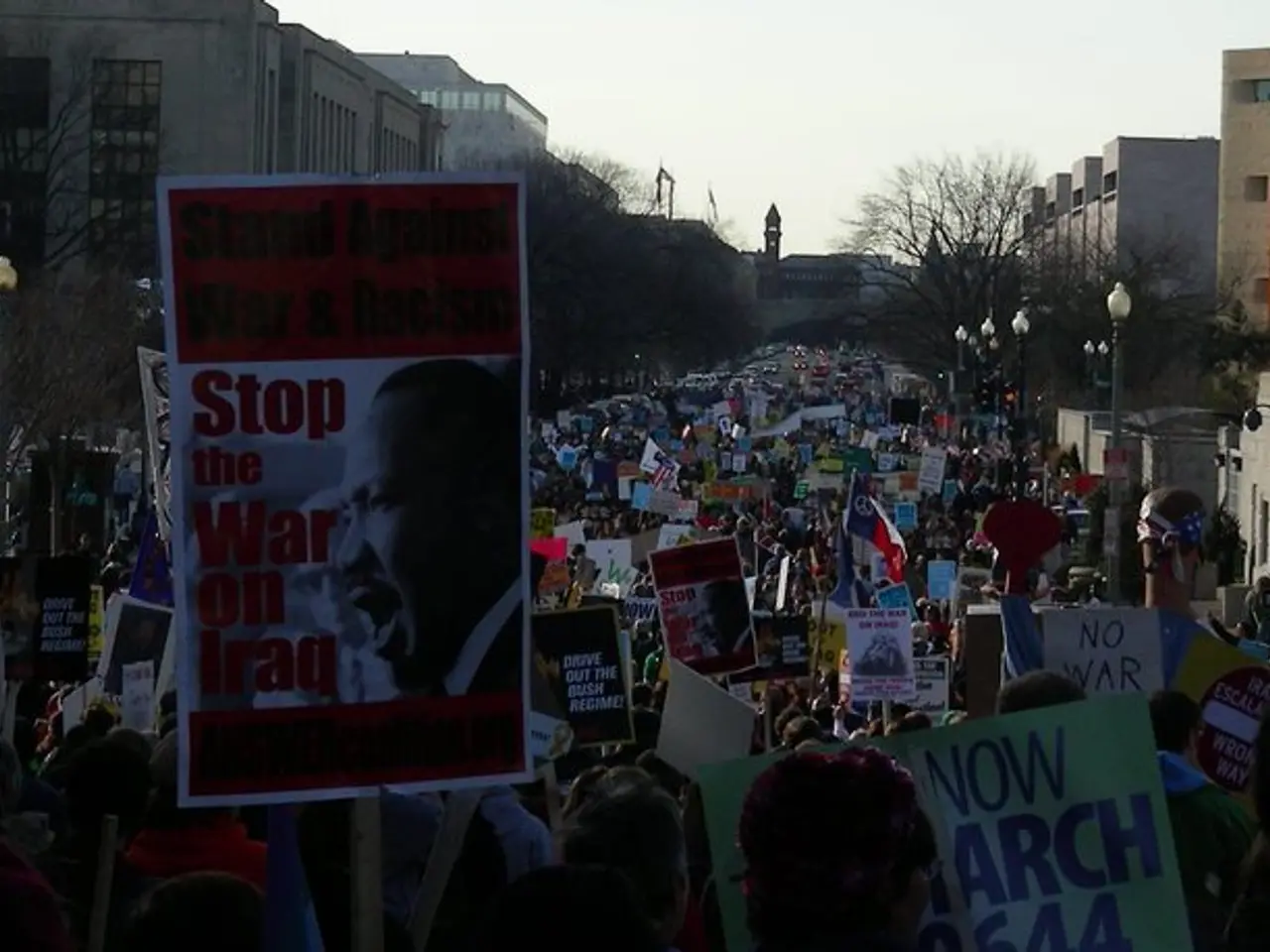Labour stands firm on welfare vote amidst significant uproar
A Spirited Showdown Over Labour's Welfare Bill
Last week, the Labour government pledged to move forward with a vote on its deeply disputed welfare bill, worth a whopping £4.8bn in savings, within the coming days, despite the opposition from more than 130 of its own MPs.
In a heated House of Commons session on Wednesday afternoon, Deputy Prime Minister Angela Rayner announced that the government intends to push ahead with reforms to personal independence payments (Pips) and universal credit, mirroring the stance of Labour leader, Keir Starmer, who was absent due to a NATO summit in the Hague.
Rayner confirmed a debate on the bill would take place next Tuesday, and a vote would follow suit. Confronting Shadow Chancellor Mel Stride, Rayner defended the government's decision to pursue these reforms, emphasizing that the move aims to inject a billion pounds into tailored employment support, guaranteeing a "right to try" for more people to re-enter the workforce, and ending reassessments for the most severely disabled who will never be able to work.
The Conservatives indicate they may support the bill contingent upon Labour's commitment to additional welfare savings. Stride criticized Labour, alleging the party is betraying businesses nationwide by refusing to rule out tax hikes.
Key aspects of Labour's welfare bill involve tightening eligibility criteria for disability payments, as well as a freeze on incapacity benefits under universal credit. These seemingly minor modifications are viewed as a crucial step in resuscitating inactive Britons and preventing the welfare budget from splurging billions on further expenses in the future.
However, the bill has sparked uproar among Labour backbenchers, with as many as 134 MPs signing up to an amendment demanding a delay pending a review and full consultation on the bill. This amendment poses a potential roadblock for Labour's attempts to expedite savings and represents another setback in policymaking, following the recent reinstatement of winter fuel payments worth £1.25bn for three-quarters of pensioners.
Opposition against the welfare bill includes Treasury select committee chair Meg Hillier, former minister Louise Haigh, former leadership contender Rebecca Long-Bailey, and several freshly elected MPs from the last year.
In a faceoff before the Work and Pensions Committee, Social Security Minister Stephen Timms emphasized the necessity for immediate transformation within Pips, given the cost skyrocketed from £12bn pre-pandemic to around £22bn last year. Timms underscored that this unsustainable trajectory necessitated urgent changes.
Rumors suggest several government ministers, including Rayner herself, have been endeavoring to court backbenchers to endorse the bill. Meanwhile, Chief Secretary to the Treasury Darren Jones shared that the government would wait for the Office for Budget Responsibility's evaluation of economic forecasts in the autumn before making a conclusive decision on taxes.
Reports also indicate a potential five-percent hike in council tax to fund spending commitments laid out in Chancellor Reeves' Spending Review, though this remains unconfirmed.
Welfare Reforms on a Mission for Sustainable Spending
According to the Office for Budget Responsibility (OBR), welfare costs to the government could swell to an astronomical £75bn by 2030, up from around £48.5bn expected to be spent in 2024.
The Labour Welfare Bill seeks to improve financial support for vulnerable groups, protect severely disabled individuals from assessments, and revise the means through which eligibility for benefits is determined. Despite the controversy within the Labour Party and mixed reactions from other political fronts, the government remains resolute that these reforms are essential to create a reasonable and sustainable welfare system.
- The Labour Welfare Bill, amidst political debates, aims to address the increasing welfare costs, which the Office for Budget Responsibility predicts could reach £75bn by 2030, by making necessary adjustments to financial support for vulnerable groups, protecting severely disabled individuals, and revising eligibility criteria.
- The spirited showdown over Labour's Welfare Bill involves discussions about investing in tailored employment support, with the government targeting a billion pounds for this purpose, while also tightening eligibility criteria for disability payments and freezing incapacity benefits under universal credit.
- The debate on the Welfare Bill also entails discussions about the broader economic implications, as the bill's success or failure can significantly impact the country's economy, influencing policy-and-legislation, general news, and business investments.








